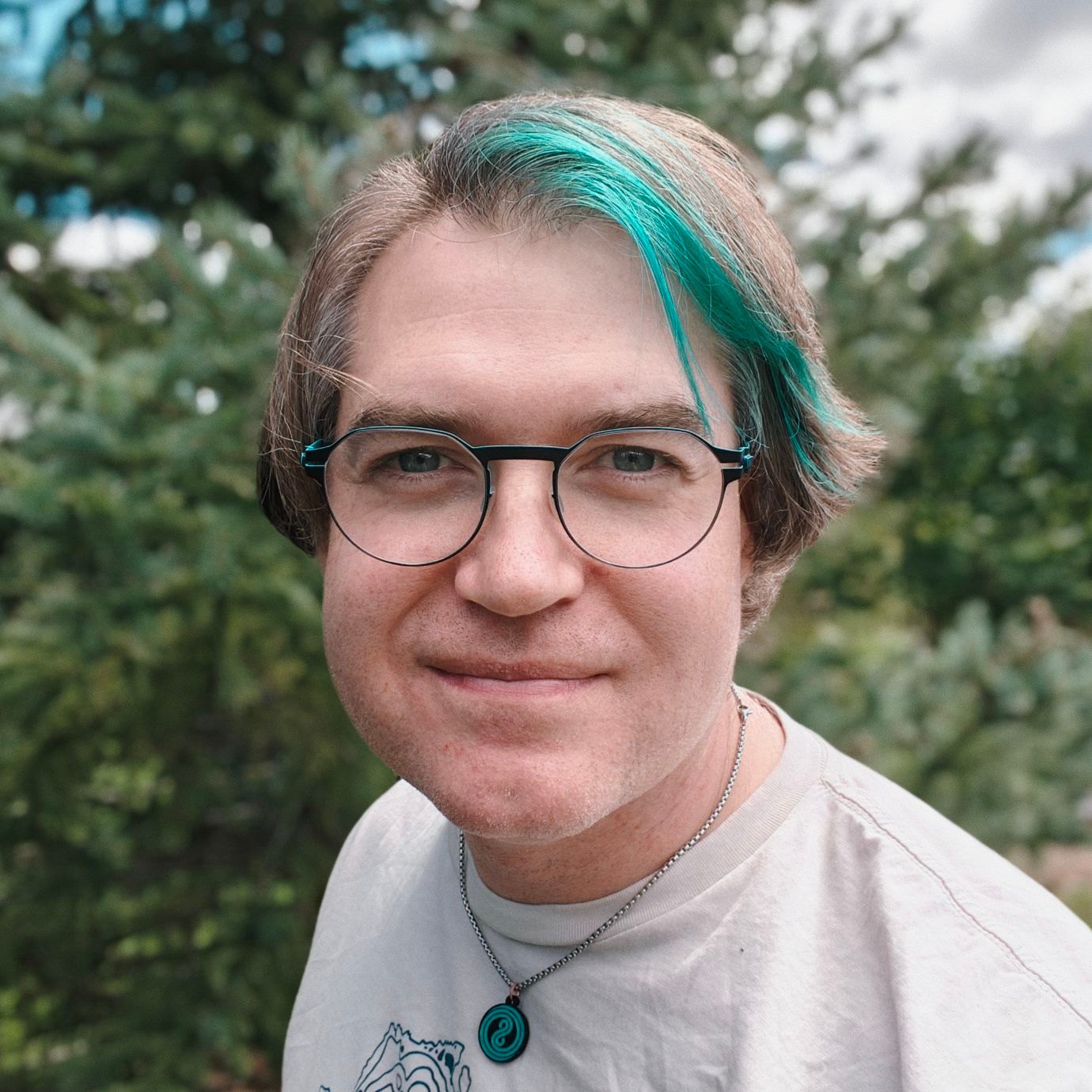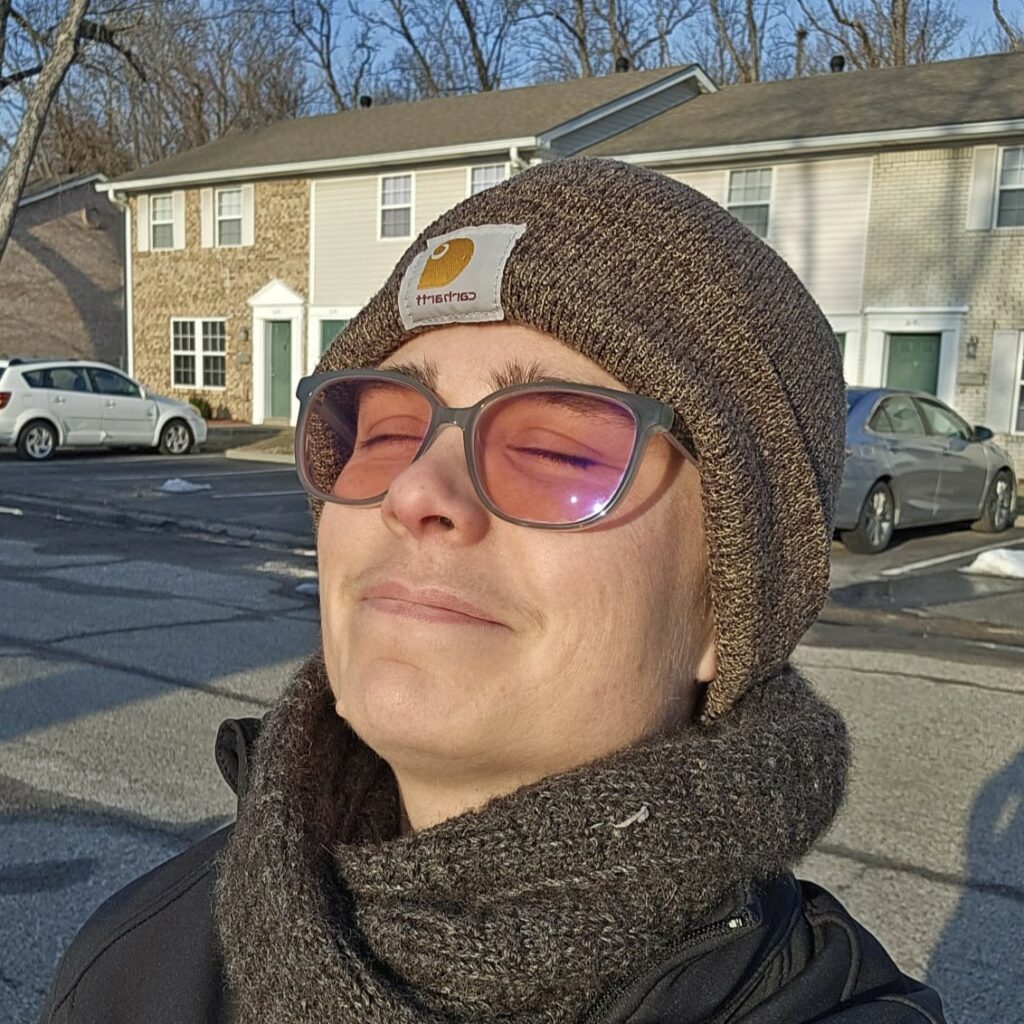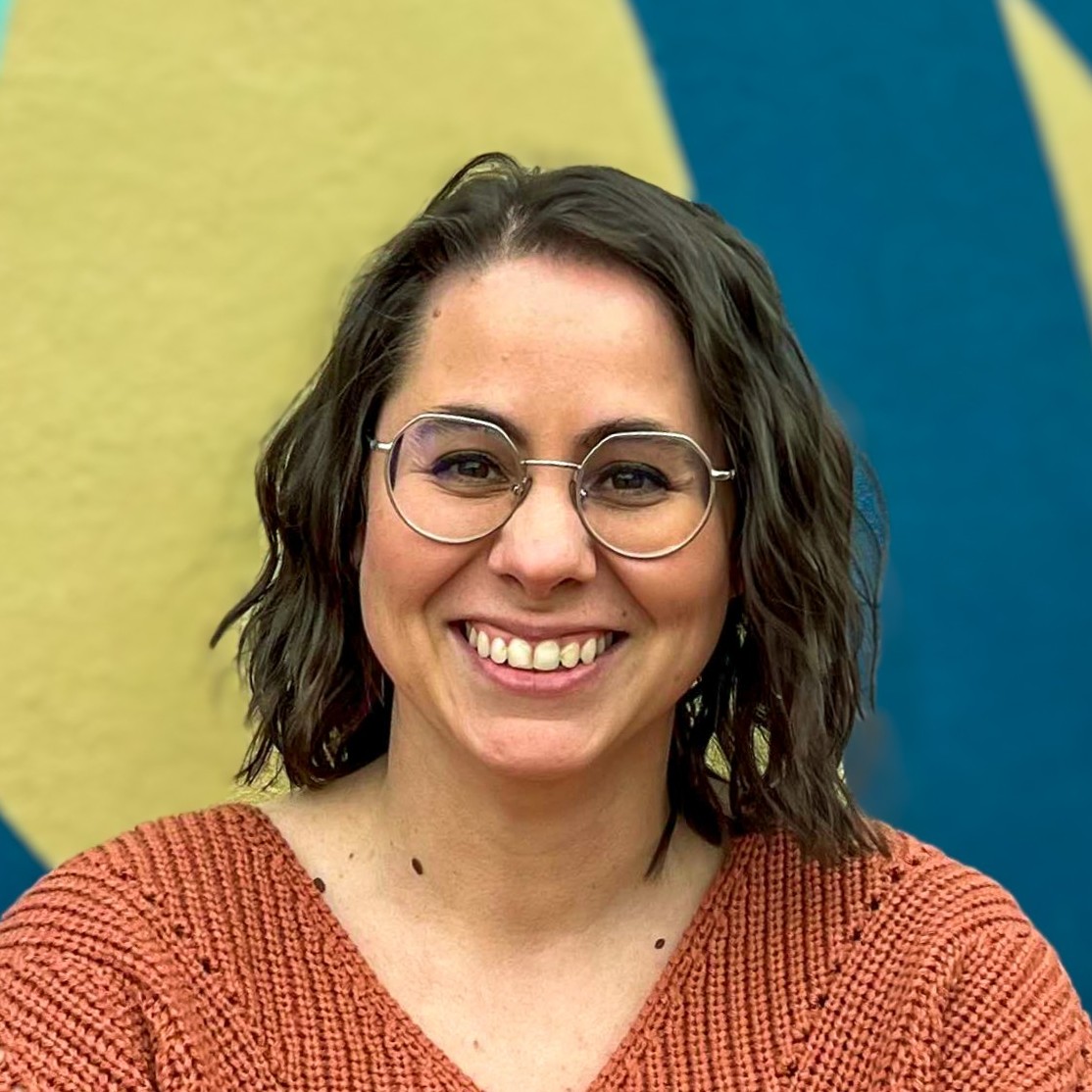Welcome to Spirit Space.
We are a collective of spiritual care practitioners drawn together by a shared reverence for love and wisdom in their vast and various forms. As sojourners on the path home to the Divine, God, Source, Boundlessness, Universal Presence, Loving Awareness, Great Mystery… we offer kindness, companionship, and presence.
Spirit Space Providers are here to support you along your spiritual path with all that arises, tuning into your deepest self, exploring your gifts, and reflecting on beliefs that may be shaping your journey. We honor the unfolding of your spiritual path, the name you give the Source and the questions or longings you bring.
Whether you seek a companion, guide, friend, teacher, or fellow traveler, we hope you find them here. We invite you to explore each provider’s stories and offerings. As you do, listen to your inner voice, notice what stirs, and trust what resonates.

Jay Lukis
Pronouns: They/Them
Language(s): English
Spiritual Bio: First and foremost, I myself identify as a Spiritual Seeker. More specifically, I identify as a spiritually fluid interfaith/interspiritual practitioner, predominantly informed by Lutheran Christianity, as an ordained pastor in the ELCA since 2011, and as a student of Buddhist philosophy and practitioner of Vipassana/Insight Meditation practices and teachings. Some affinity groups where I find a sense of belonging include neuro-diverse, disabled, clerical, queer, and householder. I am a spouse and parent of 4 children, seeing parenting as one of the most challenging—and rewarding—vocations for one who has a simultaneous intention to walking a path of spiritual growth. Throughout my whole life, music has stirred my spirit; as a guitarist and singer/song-writer, I often incorporate music into my own sacred practices. one example of how I have incorporated music into my own sacred practice, is this song which I wrote to creatively expresses my intention and commitment I bring to my work as a Spiritual Care Provider.
What does Spiritual Care Providing mean to me? To me, I am most at home in providing spiritual care in the modalities of Spiritual Guidance, Spiritual Companioning, Spiritual Direction, and Pastoral Counseling, but I always seek to follow the need of the individuals with whom I meet, and the unfolding of spirit between us. I practice sacred listening rooted in an intention to accompany clients/spiritual seekers while they explore their own interior and exterior sacred landscapes. This might include strengthening their relationship with their own understanding of the divine, cultivating new contemplative practices for experiencing the divine in their lives and world around them through all aspects of our being, or simply dwelling in divine wonder together. I find my former work, as a wilderness guide at a summer camp, to be an apt metaphor for my understanding of the role of a spiritual guide. Much like a wilderness guide, I could accompany fellow sojourners along their journey, show them some canoe paddling techniques, teach the how and where to best set up a tent, but I could never experience the wilderness for them. Much like the wildernesses of the natural world, the wilds of the spiritual landscapes come along with their own kinds of inclement weather, long portages, steep and slippery slopes, as well as breathtaking beauty, awe-inspiring wonder, and mountain top experiences. My goal as a spiritual guide is to accompany and guide you in discovering the broader territory of you own spiritual landscape(s).

Corbin Hannah
Pronouns: They/Them
Language(s): English
Spiritual Bio:
I am a Catholic, vowed religious, white, queer, disabled, contemplative ecumenical inter-spiritual Buddhist-Christian, eco-spiritualist. I am a seeker, grounded in my own contemplative/spiritual life and practices. I spend time getting to know my soulful self, connecting with my wise heart-mind, communing with nature, aligning with the beloved universe, finding my truth and path. I am a life-long learner, continually seeking out information and experiences that deepen my own capacity to be present with others. I practice being in a state of not knowing while honoring and educating myself about aspects of which I may be unfamiliar or cause me discomfort. I am a companion on the journey, longing to be of service to the awakening of our collective Interbeing. I desire to be a channel of love and a mirror of goodness.
What does spiritual care providing mean to me? Spiritual care providing, spiritual guidance, or spiritual companionship is about the relationship between seekers and the Divine. I intended to promote spiritual growth, inner freedom, and collective liberation. I support connection with self, Spirit, and others. I wish for all the ability to recognize and follow their inner teacher or the divine as they understand it. Knowing that a seeker is their own expert, I stay mindful of any leading questions or suggestions that I know what someone needs or what their inner teacher sounds like. I honor another’s autonomy and sovereignty, so I journey alongside at the pace of the seeker, sensitive to each seeker’s desires and capacities. I release the need to be right and the fear of making mistakes. I let go of problem-identifying, fixing, and advice-giving. I de-center myself to hold space for another’s truth and story. Shifting into neutral, I say yes to whatever arises, refraining from judgment. Showing up with care, compassion, and loving awareness, I do not turn away from pain and suffering. I cultivate a receptive and accepting presence through self-awareness, accountability, and integration. I intend to tune myself to what matters most to the seeker in each particular moment. I keep in mind that liberation, well-being, and discernment are linked with the common good or community. I listen for what is good for the whole. I desire for each seeker to rediscover their kinship with all beings. I continue my inner work and liberation by engaging any emotions, thoughts, and insights that emerge for me during a session.

Deb Swets
Pronouns: she/her
Language(s): English
Spiritual Bio: I identify as an interspiritual contemplative. While I was raised and rooted in the Christian tradition and ordained as a Presbyterian Church (USA) pastor, I found myself increasingly constrained by the bounds of Christianity and longing for a more expansive understanding of the divine. I see the world’s spiritual paths not as competing truths, but as different rivers flowing from the same source, each offering unique perspectives on the human condition and the nature of ultimate reality. My practice has expanded to include elements from other traditions that resonate: tarot and divination tools, creative practices, meditation and mindfulness, a deep reverence for nature, and a commitment to universal compassion. My journey is one of integration, weaving together threads from various traditions to create a unique and deeply personal path that honors the sacred in all its forms.
What does spiritual care providing mean to me? At its heart, spiritual care is the practice of listening and looking for the sacred in one’s everyday life. Everything about spiritual guidance is an invitation into the deep waters of the sacred. One of the most foundational questions of spiritual care is: “what is arising within you, and where do you notice the Divine/Sacred/God/Love in your life?” This can be a deeply personal, internal question, but our spiritual journeys are both individual and collective. We are not alone in the river of spirituality, and when we meet people from other traditions (and our own), we often shape and change each other’s understanding of the sacred. Providing spiritual care means creating and nurturing a safe space where seekers can encounter the divine and their own deepest, truest selves. My practice is one of nonjudgement, compassion, and openness, where people can bring their joys, their questions, their anger, and their hope, and encounter Spirit within and without. Ritual is a big part of my own spiritual path, and I hope to help others, especially those who are disinterested in organized religion, to create meaning and to notice the presence of the Divine through deep listening, creative practice, and ritual. For me, spiritual care and companionship is about fostering well-being through an open, inclusive, and deeply personal engagement with the sacred dimensions of life, drawing strength and wisdom from the rich tapestry of human spiritual experience.
